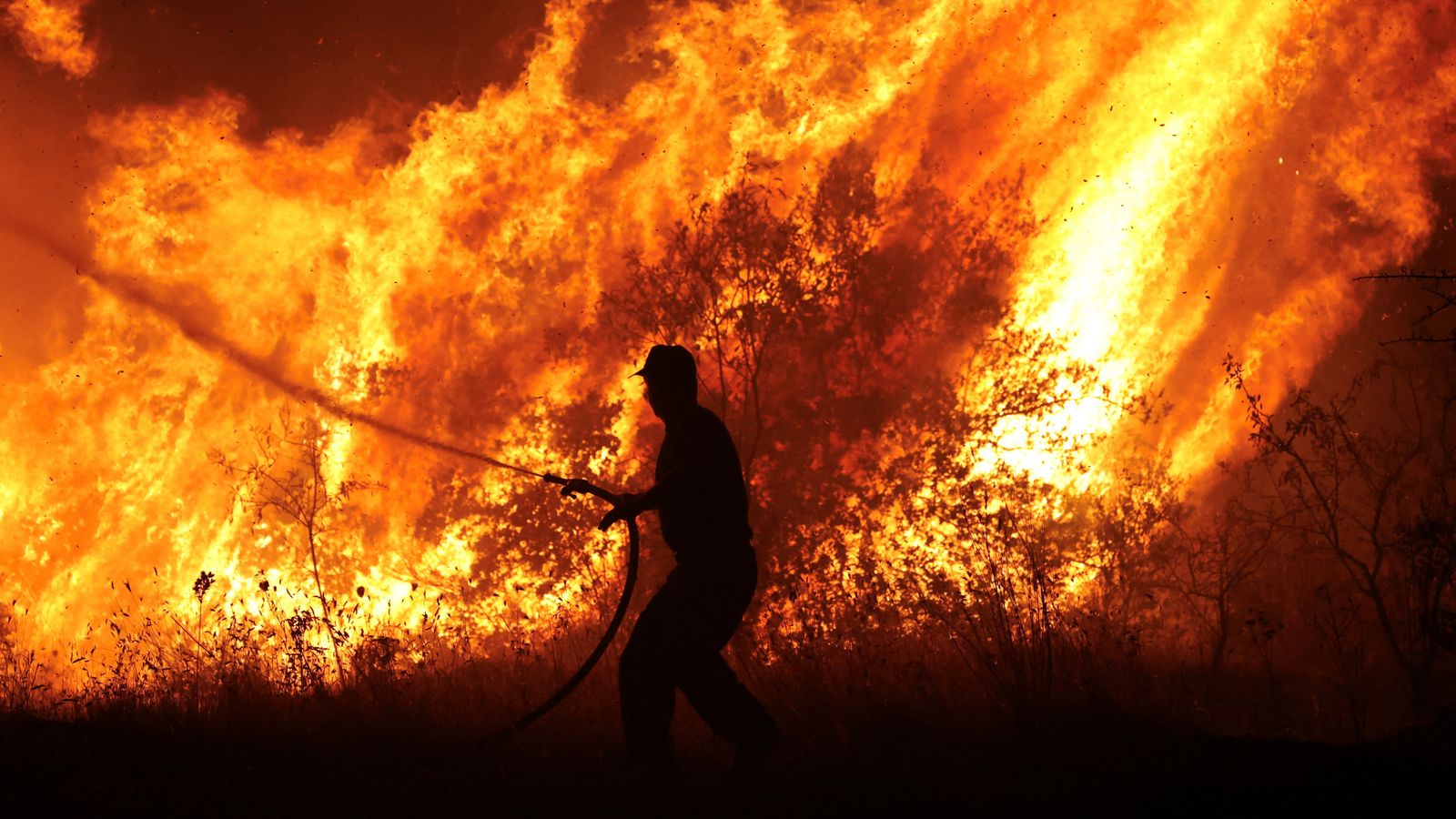The majority of the fires which have ravaged Greece in recent weeks were started by “human hand”, one of the country’s top climate officials has said.
Greece’s climate change minister said 667 fires had erupted, as wildfires scorched hundreds of square miles of land outside Athens, on the island of Rhodes, and elsewhere this month.
Vassilis Kikilias told a news conference: “During this time 667 fires erupted, that is more than 60 fires a day, almost all over the country.
“Unfortunately, the majority were ignited by human hand, either by criminal negligence or intent.”
He claimed the vast majority of fires “were caused by human hands” and said they were “arsons either by criminal negligence or by intention”, and added there are specific complaints and simultaneous occurrence of fires in the same area at close distances.
It comes as at least nine countries across the Mediterranean have been hit by wildfires, as extreme heat hitting the region has seen temperatures top 40C.
However, officials have also highlighted the role of climate change in the recent extreme heat across many European countries.
Mr Kikilias warned earlier that the climate crisis “brought us this unprecedented heatwave”.
Please use Chrome browser for a more accessible video player
He said fires had burned 400 square kilometres of land in the country in July alone, while the recent average is 500 square kilometres in a year, adding: “This is not something that will just occur this year. It will last and we have to face the consequences of what that means.”
Over 20,000 people were evacuated in recent days in Greece from homes and resorts, as thousands of holidaymakers were left stranded.
Read more:
In pictures: Terror of the Greece wildfires
How wildfires spread across Rhodes – and how much has been affected
A drop in temperatures and calmer winds helped firefighters get a handle on the blazes in Greece and all major fires were contained by midday Friday, Greek Fire Service officials said.
Conditions also improved elsewhere in Europe’s Mediterranean regions thanks to cooler temperatures, allowing firefighters to contain wildfires along the Croatian coast and in Sicily.
Click to subscribe to the Sky News Daily wherever you get your podcasts
EU officials have blamed climate change for the increasing frequency and intensity of wildfires across Europe, noting 2022 was the second-worst year for wildfire damage on record after 2017.
Scientists have described extreme heat as a “silent killer” particularly affecting the poor, elderly and those with existing medical conditions.
Research published this month said as many as 61,000 people may have died in Europe’s sweltering heatwaves last summer. It suggested preparedness efforts are falling fatally short.








